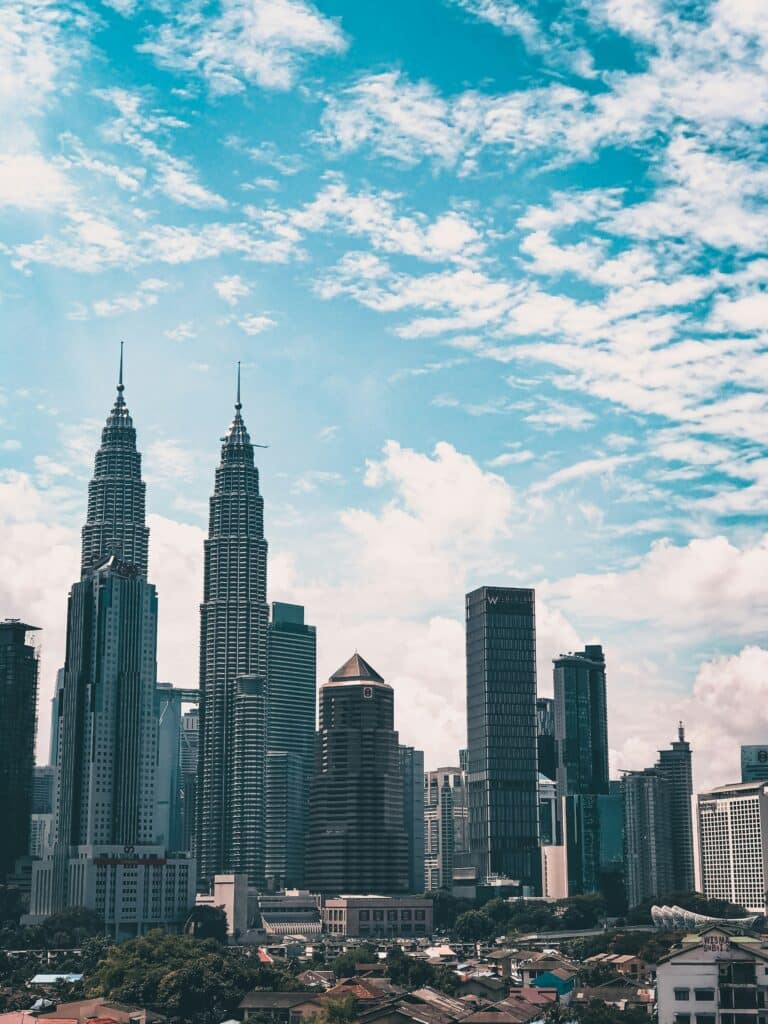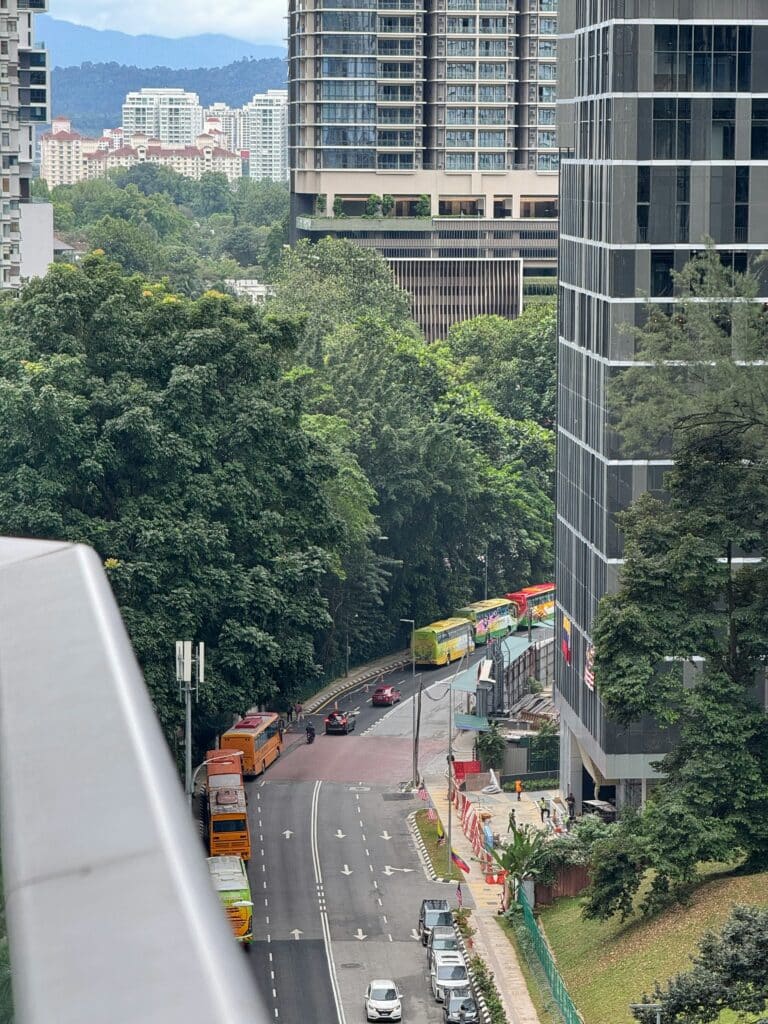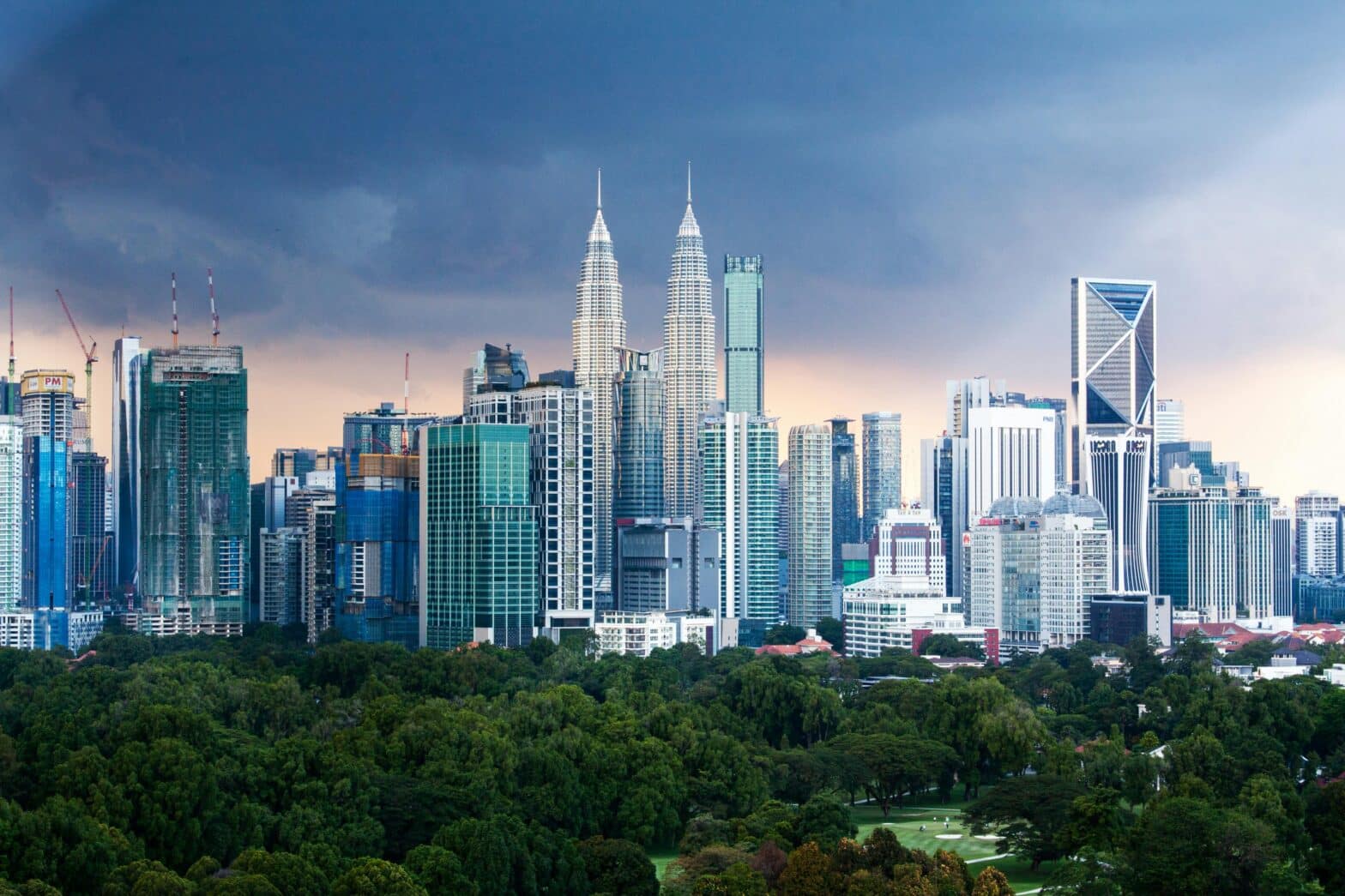Ready to move to the most trendy city in South-East Asia’s? Kuala Lumpur, a vibrant multicultural metropolis, often tops the rankings of the best cities to move to.To expatriates contemplating a change of scenery and a more exotic lifestyle, the industrial, financial and cultural heart of Malaysia, a.k.a. ‘KL’, offers excellent professional opportunities and a high standard of living.
From health to housing, here is a guide that eases your relocation to Kuala Lumpur.
Why Kuala Lumpur?
- An excellent quality of life at an affordable price!
- Strong, dynamic economy offering numerous professional opportunities
- The incomparable hospitality of the Kaelians and Malaysians in general
- The opportunity to explore a wide range of travel destinations in Asia
- A tropical climate
- A rich culinary heritage combining Malay, Indian and Chinese cuisines
- The Malaysian capital is, like the kingdom, multicultural, but with a difference: 43% of its inhabitants are Chinese and almost as many are Malays.
- While Malay is the country’s official language, English has been adopted by the people of Kuala Lumpur, particularly in the workplace.
Safety and special legal considerations
The Malaysian capital is generally considered safe, but petty crime including pickpocketing and fraud are on the rise, and road accidents are very common.
If you plan to explore the country, to avoid the risk of kidnapping, please be aware that you must avoid traveling to the north and east of the province of Sabah, or to the islands off the coast.
You should also bear in mind that any breach of the law relating to narcotics (including cannabis) is severely punished. Penalties can include life imprisonment!
Accommodation in Kuala Lumpur
What type of accommodation?
Kuala Lumpur has a lot of different housing options. Many expatriates choose to live in flats or condominiums, of which there are many available, both in the city centre and in the suburbs. And for good reason: these facilities offer the incomparable advantage of giving you access to very attractive amenities including gyms, swimming pools and concierge services. In the suburbs of KL, there is no shortage of houses, villas and bungalows.
Rent or buy?
As in other South-East Asian expat destinations such as Singapore, it is entirely possible to buy a freehold property in Kuala Lumpur. In fact, it’s an attractive investment, especially if you’re planning to settle in KL long-term.
However, renting is the most common and popular option with expatriates. It is also possible that your employer will provide you with company accommodation included in your contract, or temporary accommodation while you find your permanent home. If this is not the case, you can turn to real estate agencies and check ads on real estate websites.

NB: It is quite common to negotiate the rental price of a property before signing the lease. In fact, the prices shown on real estate websites are merely indicative. Before renting, you can also ask for improvements to be made including painting, fittings, furniture, etc.
What are the best areas for expats?
The areas around KL are expanding rapidly as the city grows. Most expats (especially families) prefer to avoid the hustle and bustle and expensive rents of the city centre, Kuala Lumpur City Centre (KLCC). They tend to settle in the outskirts of the capital, which offer a better quality of life, and feature the most popular districts for expatriates, including:
- Ampang: Very popular with expatriates, this beautiful, green and quiet district is located not far from the city centre and is the ‘embassy district’. It is home to lakes, modern buildings and colonial mansions. It’s the ideal area for peaceful suburban living without being too far from KLCC.
- Mont Kiara: Malaysia’s ‘Beverly Hills’, one of the most expensive in the capital, is a vibrant, fast-developing area with many condominiums of all types. It is close to two international schools: Garden International School and Mont Kiara International School.
- Desa Park City: This new suburban area, quite far from the city centre, is very popular with expat families, who find it quiet and green. It has a number of attractive condos and houses that are more affordable than those in Mont Kiara.
- Damansara Heights: Located close to Mont Kiara, this is an affluent, quiet residential area with superb views of the capital. It’s ideal for people who work in the city centre or in the west of KL and don’t want to live in the city centre.
- Just 2.5km from KLCC, Bangsar is the ideal neighbourhood for those who enjoy the hustle and bustle, trendy (good!) restaurants and busy shopping malls. Its residents, a mix of locals and expats, enjoy its lively, multicultural atmosphere.
- Taman Tun Dr Ismail (TTDI): If you’re looking for peace and quiet and enjoy a relaxed atmosphere, this residential area, popular with wealthy Malaysians and expatriates, is for you! Here you’ll find condos, houses and even bungalows, a nice and nearby shopping malls and… access to the jungle!
Useful links:
I Property
Property Guru
Ibilik
Working in Kuala Lumpur
Which industry?
As a strategic economic centre and regional financial hub, KL offers numerous career opportunities, particularly in the fields of finance (presence of major international financial institutions and branches of foreign banks), energy (oil/gas) and information technology, as well as in the health, tourism and education sectors.
NB: Companies in Kuala Lumpur must prove that they cannot find any Malaysian candidates for a vacant position before they can hire an expatriate for the same job. Also, if you want to set up your own business in Kuala Lumpur, make sure that your type of activity is not in a sector reserved for locals!
Hierarchy, diplomacy and a fast pace at work…
Although Malaysia is a very tolerant country, there are certain ‘rules’ to be observed in the workplace. Respect for hierarchy is at the heart of professional relations in the business world. Trust, loyalty and diplomacy also play a very important role in interactions at work.
It is not uncommon to work long hours in KL. Under the Employment Act, you must not work more than 48 hours a week, and it is possible to work up to six days a week.
The number of days of paid leave is proportional to the number of years of service: you can expect 16 days of paid leave after five years of service. The average monthly salary is MYR 6,284 (approx. €1,294). It goes without saying that the rules may differ within international companies.
Daily life in Kuala Lumpur
Cost of living and budget
While the cost of living in KL is much higher than in the rest of the country, it remains below average compared with other South-East Asian countries and European countries such as the Netherlands or the United Kingdom. The budget needed to live well in the capital varies according to your needs, your family situation and, above all, your lifestyle.
NB: 1 € is equivalent to 4.79 MYR (the Malaysian ringgit is the national currency).
Here are some examples of expenses to include in your budget:
- Accommodation: KL is home to different types of accommodation at varying prices depending on the type of property and its location. In KLCC, you can expect to pay between MYR 3,000 and MYR 9,000 a month for a three-bedroom apartment, while on the outskirts of the city, you can expect to spend between MYR 1,800 and MYR 5,000 for the same type of accommodation.
- Travel: A monthly public transport pass costs an average of MYR 50; oil costs MYR 2.06 per litre; motorbike hire costs MYR 30 per day.
- Food: Food and eating out are generally cheap. For example, 1L of milk costs MYR 8.09; 1kg of bananas costs MYR 6.70 and you can eat out for MYR 20.
- Education: Annual tuition fees at an international primary school average MYR 37,542.
Getting around
- Car: as in other major cities in Southeast Asia, the private car remains the preferred mode of transport for residents of KL and its suburbs, which have a solid network of highways.
- Motorbikes and scooters are very practical for getting around the city centre, especially during rush hours when traffic is heavy.
- Grab (the equivalent of Uber) is a very practical way to get around, especially in the city centre. It’s a great way to move around, as you don’t have to worry about negotiating a fare which is set on the app before you get into the car.
- Public transport includes several train lines, a bus network (RapidKL), four metro lines (LRT) and a monorail line. The Malaysian government, keen to encourage the use of public transport, is planning to open a new 620 km line to open up East Malaysia by 2027 (East Coast Rail Line project).

Education in KL
Due to language and complex administrative regulations in the national government school system, most expatriates choose to send their children to international schools in Kuala Lumpur.
If your preference is a private international school, there are several options to choose from, including the Lycée Français de Kuala Lumpur Henri-Fauconnier, the British International School Kuala Lumpur and the International School of Kuala Lumpur. Depending on the school, courses are taught in one or more languages (English, French, Mandarin, etc.) and follow the national curriculum of a specific country or offer the International Baccalaureate syllabus. Tuition fees for such schools are high (up to MYR 122,000 per year for some institutions).
Healthcare in KL
Malaysia is a leading medical tourism destination in Southeast Asia. Kuala Lumpur, in particular, is home to a number of top internationally renowned healthcare facilities that attract foreign patients. In both the public and private sectors, traditional and modern medicine co-exist within a high-quality medical infrastructure. The general and specialist healthcare services on offer are efficient and effective.
Public hospitals are reserved for Malaysians, except in emergencies. Expatriates tend to use the many private medical institutions in the capital.
For more information on healthcare in Malaysia and costs, click here!
Top 5 of best hospitals in Kuala Lumpur:
- Gleneagles Kuala Lumpur is an internationally renowned private hospital, a member of the IHH Healthcare Group; renowned for its specialist healthcare services from cardiology to neurology, international patient base and top-notch medical technology.
- Kuala Lumpur Hospital the largest public hospital in KL offers a full range of medical services.
- Pantai Hospital Kuala Lumpur is a private healthcare facility with a strong reputation for specialist medical services and state-of-the-art medical equipment.
- Prince Court Medical Centre is a medical tourism destination featuring excellent surgical care.
- Pantai Hospital Ampang is a private hospital offering a full range of efficient healthcare services.
